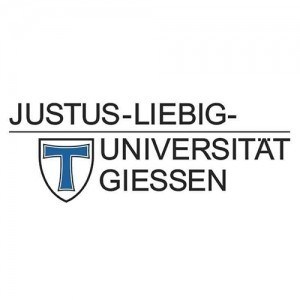Photos of university / #humboldt.uni
«Global Change Geography» at Humboldt University of Berlin is an interdisciplinary master's program that explores the complex interactions between natural systems and human activities impacting our planet. This program aims to provide students with a comprehensive understanding of the processes driving environmental change, including climate change, biodiversity loss, land use transformation, and urbanization, as well as the social, economic, and political factors influencing these transformations. Students will develop critical analytical skills, methodological expertise, and a deep awareness of sustainable development challenges. The curriculum combines theoretical foundations with practical applications, including fieldwork, modeling, data analysis, and policy assessment. Emphasizing international perspectives and interdisciplinary approaches, the program prepares graduates for careers in research, environmental policy, urban planning, and consultancy. Students will have opportunities to collaborate with faculty involved in cutting-edge research and to participate in international seminars and projects. The program's location in Berlin, a hub of environmental science and policy, offers additional advantages such as access to research institutions, NGOs, and governmental agencies. Graduates will be equipped with the knowledge and skills necessary to analyze environmental changes critically, formulate sustainable solutions, and contribute to the global efforts against environmental challenges. The program duration, admission requirements, and language of instruction are aligned with Humboldt University's standards. Overall, Global Change Geography at Humboldt University of Berlin aims to develop experts capable of addressing the pressing ecological and societal issues of our time through innovative research, policy development, and practical implementation.
Educational organisation
The MSc Global Change Geography is a two-year Master's programme. Year one consists of compulsory and elective modules. The modular structure of year two, consisting of flexible and research-oriented specialisation modules, enables students to tailor the programme around individual interests and career goals. All courses are taught in English.Study abroad unit(s)
It is recommended that students study abroad during the third semester. A wide range of ERASMUS cooperation agreements exist.Forms of assessment
Written and oral exams, reports, homework assignments, Master's thesis (30 ECTS)Course objectives
The study programme qualifies students for a wide range of professional fields, such as employment in science, planning, consultancy, nature conservation, development cooperation, specialised media, and international organisations.Language requirements
English Level B2 (European framework) or equivalentWays to prove English language skills:
- International English Language Testing System (IELTS): 5
- Cambridge First Certificate in English (FCE): A-C
- ETS Test of English as a Foreign Language (TOEFL):
- Internet-based Test: 87
- Paper-based Test: 560
- HU-Leistungsnachweis Stufe UNIcert® II: 2.7
- Test of English for International Communication TOEIC: 785
- DAAD-Sprachzeugnis: minimum C in all areas
For more information (especially for German applicants), please refer to the "Fächerübergreifende Satzung zur Regelung von Zulassung, Studium und Prüfung der Humboldt-Universität zu Berlin (ZSP-HU)" and to http://hu.berlin/apply.
Academic requirements
Bachelor's degree in geography (ideally physical geography) or a related subject, e.g. environmental sciences, geo-ecology, landscape ecologyFor details, please refer to: https://www.hu-berlin.de/de/studium/beratung/faecheruebergreifende-satzung-zur-regelung-von-zulassung-studium-und-pruefung-zsp-hu-lesefassung/view










